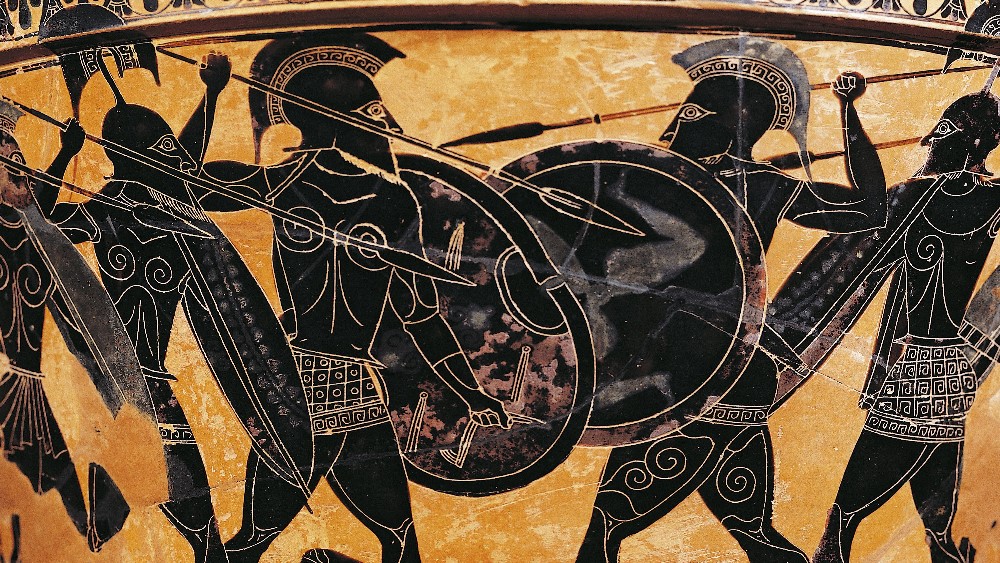Thucydides in context
There is a pleasant story told by Hobbes that says that when young Thucydides, son of Olorus, heard Herodotus giving a reading from his Persian Wars in Athens, the lad burst into tears. The old historian is said to have complimented the boy’s father on having a son who had shown such a natural gift for learning. We don’t know if this tale is true but we do have some facts about the life of the man who was to become the second great historian.
Thucydides was born before 455 BC to a rich Athenian family related to the famous political leaders Miltiades and Cimon. He rose to a position of wealth (owning gold mines in Thrace) and considerable political power himself in his native city, being elected to the Board of Generals in 424 BC when Athens was in the midst of its great war with Sparta, a war which Thucydides had already begun to record. Unfortunately Thucydides failed in a military mission by being unable to save Amphipolis from the Spartans and as a punishment he was driven into exile. He spent his 20 years in exile writing his history of the Peloponnesian War and spent part of this exile among his old enemies which allowed him to see the viewpoints of the Spartan side. The details of his death are uncertain. In some accounts he dies at sea after leaving Athens in disgust at the rule of the Thirty Tyrants; some say he died in Thrace; some say he was murdered in Athens shortly after the end of the war. What we do know is that his Peloponnesian War was unfinished at his death and unpublished. It soon became well known and three Greek historians all tried their hands at finishing it: Xenophon, Cratippus and Theopompus.
Unlike Herodotus of Halicarnassus whose city had been occupied by, and cooperated with the Persians, Thucydides was a man of mainland Greece and its most powerful city Athens, the saviour (in its own eyes and those of Herodotus) of Greek civilization. The notion of the polis or city-state was the dominant political idea in the Greek world: few Greeks could conceive of a higher loyalty than to one’s own city and the disunity of the Greeks, so harmful during its war with the Persians, continued after the Persian menace receded in 479 BC. The short-lived and touchy wartime cooperation between Sparta and Athens soon began to erode. Athens went on to establish, at the instigation of Aristides in 477 BC, a confederation with smaller cities and Greek islands whose intention was to recapture control of the Aegean and drive the Persians out of Ionia, liberating the Greeks of Asia Minor. The confederacy was called the Delian League because its treasury and assembly were held on the sacred island of Delos. What started as an alliance, before long became an Athenian empire. The commanders of the military force were Athenians; Athens decided who was to provide ships and who was to provide money; and Athens decided how that money was to be spent — in fact much of it would come to be spent on rebuilding Athens and strengthening the democratic forces in the city. The League muscled Sparta out of Byzantium, chased the last Persian garrisons back across the Hellespont and drove the Persians back from their Mediterranean bases in Ionia. At the same time Athens kept its so-called allies on a short leash and allowed them little independent action; they were particularly discouraged from seceding from the League. The leadership of the Greek world was thus passing from conservative, land-based Sparta to democratic, sea-based Athens. The Peloponnesian War was a result of the tensions this new situation engendered.

